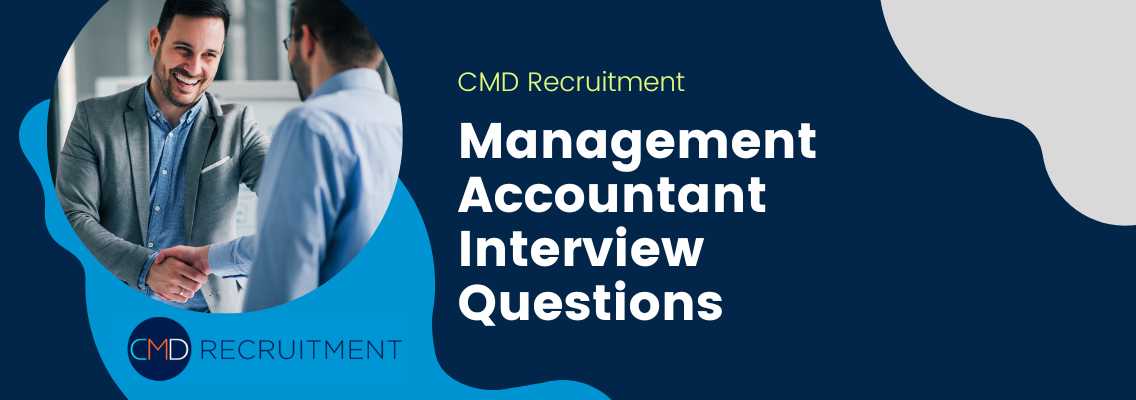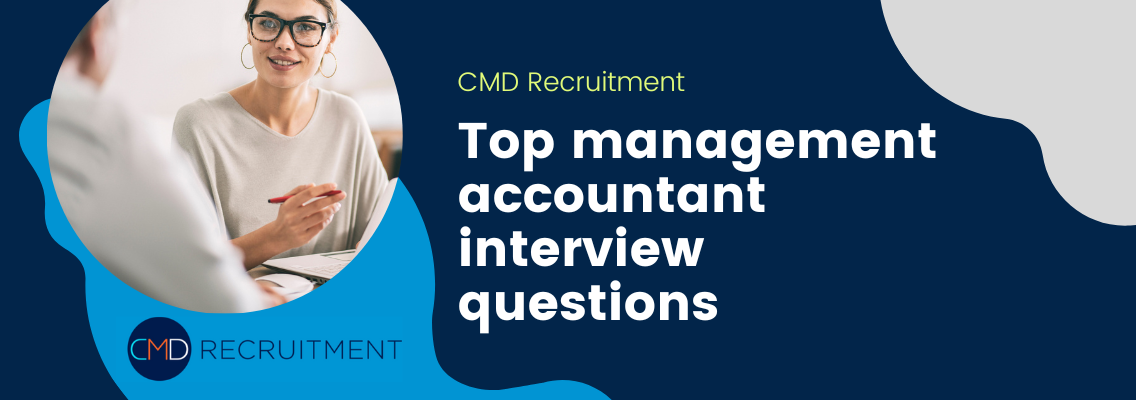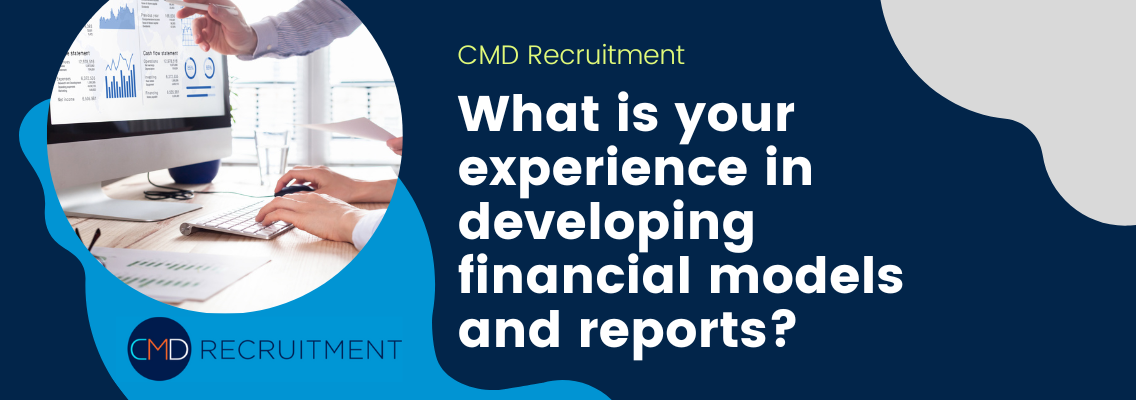Important notice - We are aware of a scam where people are impersonating CMD Recruitment to offer jobs via WhatsApp & Telegram. This is a scam, CMD Recruitment will never contact new candidates via these methods. Any legitmate offer from CMD Recruitment would be made via a telephone call.

December 22, 2022
When applying for a role as a management accountant, you will need to tick a lot of boxes for the hiring manager. This is a technical role that requires specific training, but there are also soft skills that need to be present in order to be successful.
A management accountant is responsible for a range of accounting tasks, including analyzing financial statements and developing strategies to help control costs. They need to be able to interpret data quickly and accurately in order to provide feedback and advice on financial performance.
Questions in management will typically include behavioural, communication, performance-based and opinion questions. You might also be asked to think outside the box with a brainteaser-style question. These are not intended to trip you up but will instead assess how you approach problems. Since management accountants spend a lot of time solving problems in abstract ways, you can expect a few brainteaser questions.

To help you make sure that you are prepared for the interview, here are some common management accountant interview questions you should be aware of.
This question is quite technical and is asking a few things: what is your training, what is your experience, and what software packages are you comfortable with? It’s an ideal opportunity to give the interviewer an overview of your experience.
This question is testing your attention to detail and problem-solving abilities. Talk about the steps you take when entering data or resolving discrepancies, including any times when you have been expected to complete this task.
Budgeting and budget forecasting are critical skills for management accountants, so the interviewer will want to get a good idea of what experience you have in this area. Again, you need to give examples from throughout your career when you have been tasked with budgeting and budget forecasts, starting with the most recent, as this will be the highest level of seniority.
The interviewer wants to know how aware you are of the regulations and guidelines that govern accounting practices. Talk about any resources you use to stay up-to-date with the latest regulations. This is a chance to explain how you take an interest in your role outside of the office environment.
This question is asking you to demonstrate your ability to think strategically. Give concrete examples of when you have implemented processes or technology that increased efficiency and reduced costs. Try to be as specific as possible, don’t simply say that you saved the company some money.

The interviewer is asking you to give an overview of your experience in creating reports and financial models. Talk about the types of reports and models you have experience using and then use this to elaborate on your experience and training.
This question is testing your decision-making skills, so you need to be able to explain how you would evaluate the situation and take appropriate action. It’s also assessing if you have ever been in a position of authority to make these kinds of judgements. If you are new to the profession, you may have to lean on your training and work experience as a junior to show that you know how to make these important judgements.
Self-awareness and an understanding of the role are essential for success. Talk about technical skills, such as an understanding of accounting principles and financial analysis, but also mention soft skills such as communication and relationship building. You can also use this opportunity to show that you would be a good cultural fit for the company.
This is a very generic question, but you can make it more specific to the role by demonstrating that you are familiar with the conflicting demands of the role. Talk about any techniques you use to stay organised, such as lists, schedules and task prioritisation. This is also a chance to demonstrate your time management.
The interviewer is giving you an opportunity to show what insights and data-driven decisions you have made in the past. Talk about a specific instance in your career where this was a requirement. You can also talk about your training or any ongoing training you might have undertaken to keep your skills up to date.
These are just some of the questions you might encounter in a management accountant interview. Being prepared for these types of questions and having examples to back up your answers will help you stand out from other candidates. Show the interviewer that you have a comprehensive understanding of the role and how it fits within the company, as well as your ability to solve complex problems with data and analytics.
Back to Blog